Demons of demonetisation haunt students; some even got groped and assaulted
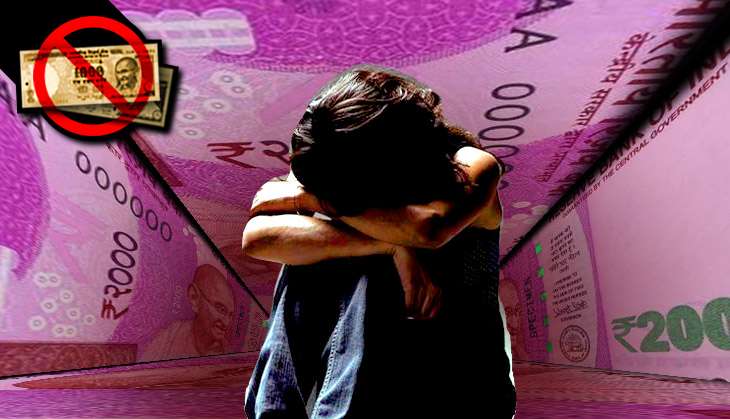
College students living away from home are typically an ATM-dependent lot. So, the Central government's move to demonetise the Rs 500 and Rs 1000 currency notes has disrupted the lives of outstation students to a large extent.
Some women students in Delhi told Catch they had even faced harassment while standing in long queues outside ATMs and banks.
On Sunday, three outstation women students were assaulted in a stampede-like situation while waiting outside the Allahabad Bank at Shakti Nagar near Delhi University's north campus.
"We reached the bank at 8am, yet were allotted the serial number 135 on a chit. Our turn was finally about to come around 4pm, when a bank official announced that they could only service 60 more people. That's when nearly a dozen guys suddenly showed up and tried to break into the queue, claiming they had been allotted chits with earlier numbers," said Shambhavi Srivastava, a third year student at Hansraj College who hails from Patna.
"Everyone in the queue protested. That's when those guys and some others began physically attacking people who tried to stop them. My friend Sheetal was badly groped, I almost got choked, and my friend Aanchal was kicked in the stomach. There were a couple of older women in the queue, but they left after the situation got violent.
"There was even a cop on the road outside, but he simply kept watching, he did not do anything. Later, two more cops came, but those goons were nowhere to be seen," Shambhavi added.
Sheetal Kashyap from Shimla, who is taking coaching classes for medical entrance exams, said she still somehow managed to get inside and exchange money, as she desperately needed cash.
"But the Rs 2,000 note is useless, as we could not use it anywhere. Finally, one neighbourhood lady who sells groceries agreed to give change, but we had to buy unnecessary things for over Rs 1,000," Sheeta said.
Sobia Bhat from Kashmir, a postgraduate student of sociology at Jamia Millia Islamia, said she had also faced eve-teasing while waiting outside an ATM.
"I stay in Batla House. Four days ago, I was standing in a long queue outside an ATM in my lane, and these random guys started making demeaning comments, so I left," she said.
"But I had absolutely no money, so I put up a Facebook status asking for help, and a professor of mine lent me 500 bucks in 100 rupee notes. That's how I've been managing so far."
Many outstation students have been surviving on money borrowed from their friends, while others have been unable to pay rent.
Exams around the corner
But, most importantly, the demons of demonetisation have even haunted their studies and exam preparations, as examinations loom large in most universities.
Many students said they did not have money to buy study material, such as reference books, and even for photocopying notes or other required material.
"I need to buy a book for my upcoming exams in December, but I cannot because I have no cash. Many of my friends also need to buy study material, but have not been able to. I've even been eating thanks to money borrowed from friends. I share a room with friends, so we are somehow managing, but none of us can afford any expenses, apart from food and going to college," said Diganta Bora from Guwahati, a second year LLB student at the Faculty of Law, Delhi University.
"I just had a Rs 500 note the night the announcement was made. I've been trying to get it exchanged, but no luck. On Sunday, I spent the whole day waiting at a bank here in Vijay Nagar, but they ran out of cash before my turn came," he added.
Kokab Aleem from Punj in Jammu & Kashmir, another postgraduate student at Jamia Millia Islamia, said she could not attend any of her classes as she spent five hours standing at a bank in the nearby Jasola area.
"I ended up missing classes, but I needed money, so I had no option. We have exams coming soon, and we cannot afford to waste so much time," she said.
Sobia said she was facing difficulty even in commuting to her coaching classes.
"I've been taking buses everywhere but I've still had to cut down on the food I eat. I needed to buy medicines, but I can't afford to now."
Sobia pointed out that being a woman, she could not even go to ATMs at 2am or 3am, when there is a lesser crowd expected.
"Aside from safety issues, there are curfews on us. I stay in a PG that has a curfew of 9pm, and the girls staying in hostels have an even earlier curfew."
Is plastic money a solution?
Given that the situation at banks and ATMs is unlikely to normalise soon - Union Finance Minister Arun Jaitley has said it could take two to three weeks - students are quite worried.
"We need to study for exams. How will we manage if we spend several hours outside ATMs and still don't get cash? The larger intention behind demonetisation might be good, but this was a badly thought-out move," Sobia said. "Students from well-off families can still manage. But many students who do not have much financial support from their families are going through an especially hard time."
Asked if using plastic money was an option, the students agreed that they could not swipe cards everywhere, and also that buying things from places that accepted cards was far more expensive, given their tight budgets.
"We had to buy all our groceries from the supermarket, as we have no cash to pay vegetable vendors. But it is super expensive. Cards are not the answer to this crisis. People with cards have already been using them. But it seems as if one whole mode of payment is being finished. What about people who do not have cards or even bank accounts?" said Roshni Srivastava from Patna, a first year LLB student at the Faculty of Law, Delhi University.
Kokab added: "We are still students, mostly from the middle classes, mostly with debit cards. But the majority of people waiting in the line with me at the bank were from the working classes. There were lots of women who said they could not cook any food for their children that day as they had been standing since morning. And their husbands could not afford to waste time in the queue as they were daily wagers and would lose out on the day's income."
Edited by Shreyas Sharma
More in Catch
Exams, ATMs and long queues: Students hit hard post demonetisation
Class 10 board exams for CBSE schools return with cheer, and angst
Najeeb Ahmed of JNU has been missing for a month. What now?
First published: 16 November 2016, 2:21 IST

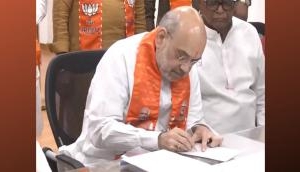
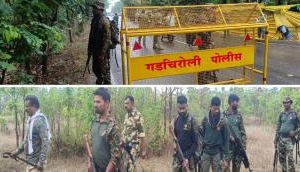
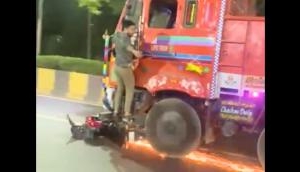
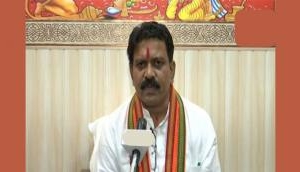
![BJP's Kapil Mishra recreates Shankar Mahadevan’s ‘Breathless’ song to highlight Delhi pollution [WATCH] BJP's Kapil Mishra recreates Shankar Mahadevan’s ‘Breathless’ song to highlight Delhi pollution [WATCH]](http://images.catchnews.com/upload/2022/11/03/kapil-mishra_240884_300x172.png)

![Anupam Kher shares pictures of his toned body on 67th birthday [MUST SEE] Anupam Kher shares pictures of his toned body on 67th birthday [MUST SEE]](http://images.catchnews.com/upload/2022/03/07/Anupam_kher_231145_300x172.jpg)






